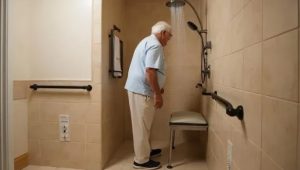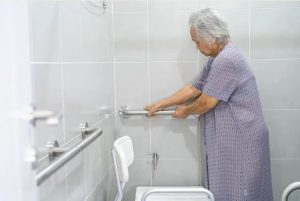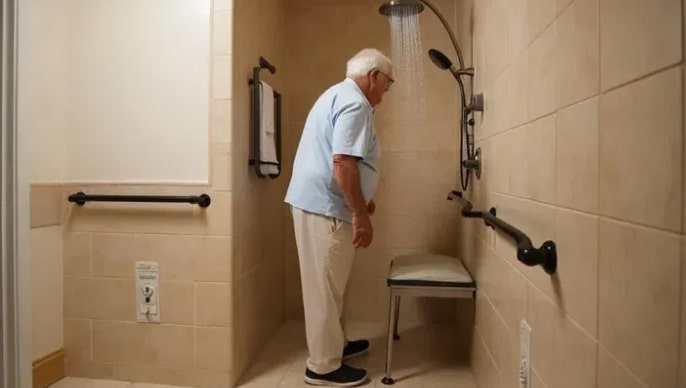When it comes to safety in the bathroom, most people think of things like grab bars, non-slip mats, or walk-in showers. But one important factor often goes unnoticed: the time of day you choose to shower. According to health experts, when you shower can significantly affect your safety—especially as you get older. In fact, showering at the wrong time of day can increase the risk of dizziness, falls, and other unexpected accidents.
Surprisingly, mornings are one of the most dangerous times for older adults to shower. Right after waking up, the body is still adjusting, and that’s when blood pressure is typically at its lowest. This can lead to lightheadedness, dizziness, or even fainting. A condition known as orthostatic hypotension—where blood pressure suddenly drops when standing up—can become especially dangerous in a slippery shower environment. Add to that the body’s general fragility during the early hours, and it becomes clear why this routine can turn risky.

There are also physical factors that raise the danger. Hot water, while comforting, can cause blood vessels to dilate and redirect blood away from the brain, making dizziness worse. On top of that, stepping out of a warm shower into a cooler room can shock the system and cause chills or disorientation. And of course, wet and slippery bathroom surfaces without proper safety features increase the risk of falls even more.
Thankfully, there are simple changes you can make to stay safe. First and foremost, consider adjusting your shower time. Experts recommend bathing between mid-morning and mid-afternoon, when your body is more awake and your blood pressure is more stable. Before showering, prepare the space—warm up the room, drink a glass of water, and do a few gentle seated stretches to get your blood flowing. When you enter the shower, keep the water warm (not hot), and use non-slip mats or footrests with suction cups to prevent slipping. Installing grab bars near the shower and toilet can also provide extra support and confidence.

If you or your loved one needs extra help, don’t be afraid to ask for it. Having someone nearby or using an intercom or emergency alert button can offer peace of mind. For those with limited mobility, a foldable shower seat can be a game-changer. You might also consider a thermostatic faucet that maintains a steady water temperature and avoids sudden changes.
In the end, showering should be a refreshing and relaxing part of your day—not a risky one. With just a few thoughtful changes, you can create a safer bathroom routine and enjoy your shower with comfort and confidence.
Stay safe, stay warm, and take care of yourself—one shower at a time.


